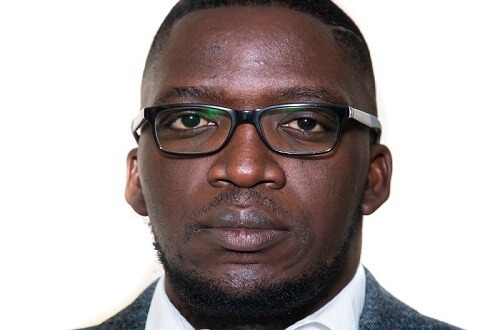
The International Coach Federation South Africa says that the business coaching sector has grown significantly for many reasons, including:
– Rapid changes that are taking place in the external business environment.
– The growing shortage of talented employees in certain industries means companies must commit to investing in individuals’ development.
– People today are more open to the idea of being in charge of their own lives and coaching helps them do just that.
According to Brian Mhlanga, an executive business and leadership coach, to become a successful business coach you first need to understand your skills, gifts, and talents. “It’s about tuning into your specialty or niche, working from your genius zone and serving the right audience – the people who most need your expertise,” he says.
He explains that there is a difference between business coaching and life coaching. “Unlike life coaching which is designed to serve the individual only, business coaching serves the developmental needs of both the individual and the business.”
Colleen Qvist, the COMENSA Gauteng chair and a credentialed master coach practitioner, says if you are thinking of becoming a business coach you first need to do your homework thoroughly. “Do not feel tempted to set up your business without the necessary experience and qualifications as a business person and also qualifications and experience as a coach.
“In addition to this, please join the SAQA-recognised professional body for Coaches and Mentors in South Africa (COMENSA) www.comensa.org.za. COMENSA has a list of coach training providers who provide training within the Behavioural Standards Framework for Coaching,” Qvist says.
Your real value is your experience
Industry overview
Key trends in business coaching
According to Mhlanga, the business coaching industry is in the growth stage in South Africa – there is a high demand and many organisations are starting to see it as an investment.
He adds: “Key trends are that more black males and females coaches are entering the industry. Our local tertiary institutions and universities are also offering programs from post graduate diplomas to PhDs.”
COVID-19
Mhlanga on the impact of COVID-19:” The old method of coaching is slowly becoming obsolete as COVID-19 has brought changes to those who have been resistant.
“During this pandemic, both the coach and the client need to make use of various video/audio telecommunication tools to connect with each other.
“Unless you supply an essential service, online coaching is the best option you have. Online coaching can be done through various tools such as Skype, Zoom, Google Hangouts, FaceTime, etc.”
Niches
Mhlanga says that niches in the business coaching industry include leadership or executive coaching, African leadership, women and youth development, transitions/transitioning and diversity management or transformation and inclusion.
Like with any other business, Mhlanga says it’s important to identify and dominate your particular business niche market. “As a business coach, you need to have a really deep understanding of your target market and ideal client so you know how you can best serve them and, also, how you can craft a message that will get their interest and attention.
“Know your ‘ideal client’ and be clear about who you’re targeting and what you’re offering them.”
Your clients will be people looking to make improvements in their lives
-
Opportunities within the business coaching industry
According to Mhlanga, opportunities exist but there are issues with access. “This can be determined by several factors, but if you don’t have a clear target market, you will have no idea what the right opportunities are and you might end up saying ‘yes’ to everything.”
He warns that there is limited time and energy to acquire clients, to create coaching programs, coach clients and invest in professional- and personal development, as well as admin such as financial management, replying to emails, and more.
“So, you need to choose wisely the opportunities you say ‘yes’ to – and having a clear target market will help you do that,” he says.
“Another consideration is how you position and market yourself to generate opportunities.”
Business coaching serves the developmental needs of both the individual and the business. By spending just R300 on a business coach can save a startup hundreds of Rands in the long run.
-
Training and support

Skills needed
Qvist warns that it may be tempting to sign up for a training course that is cheap or even free and involves a few hours of training. “This is categorically not professional training and in no way would it qualify you as a professional coach.
“You would not want your doctor to train this way. The same standards of professionalism and ethics apply to the coaching industry. An unqualified person calling themselves a coach can do just as much damage as a doctor. Please also understand that coaching does not involve giving advice in any form.”
Mhlanga adds that business coaching requires an unique set of skills.
“The pathway to becoming a business coach requires a desire to lead and support others, in combination with business knowledge and masterful application of coaching skills, strategies and frameworks for each client’s needs.
“You need an understanding of how human nature, societies and groups work. You also need to know how the body is connected and how it may respond to stress and even success.”
Online business coaching
COVID-19 is set to have a lasting impact on coaching, Mhlanga suggests the following skills for online coaching.
- The ability to adapt and learn quickly
As a coach you need to be adaptable because you work with clients with differing needs. The adaptability skill comes into play because the world is now moving into the digital sphere and it’s important that coaches keep up and bring another element to connecting and reaching clients more efficiently.
- You need to understand the technology
Online coaching is a coaching style in itself. You need to understand the various tools that will help your business grow. It includes social media as well as various other digital marketing techniques.
- Listening skills and vigilance
All coaches are good listeners. It becomes imperative to be a good listener when you are an online coach. Listening to your client is the only way you can connect with them. Effective listening builds trust and boosts the confidence of the person talking as they feel acknowledged. You also need to be more vigilant as the human-to-human interaction is now on a digital front by strengthening your coaching senses and your ability to pick up on client behaviour from a distance is important for survival.
Business Coaching Qualifications
There are a number of training programmes available to qualify as a business coach. It is important to ensure that the programme is approved by the International Coaching Federation (ICF). The ICF is a global support network and accreditation body for professional coaches.
“Training is required as this is a specialised area, most local universities are offering professional training,” says Mahlanga.
Below are some of the organisations that offer business coaching programmes:
- Universities such as Witwatersrand’s Wits Business School offer a variety of courses. The Gordon Institute of Business Science offers the Professional Business Coaching Programme for individuals seeking to become professionally qualified, to gain additional ICF-approved training and enhance their coaching skills.
- Online courses, for example the University of Cape Town’s Executive and Management Coaching online short course.
- South African College of Applied Psychology also offers a range of coaching courses, which are accredited by the International Coach Federation (ICF) and COMENSA (the SAQA-recognised non-statutory professional body for coaching and mentoring in South Africa).
- COMENSA has training providers who offer coaching or mentoring training programmes, courses and workshops to people who are currently coaching or mentoring, or who aspire to become a coach or mentor.
Support
Mhlanga says it’s difficult to get support for such a business, however with a good business plan banks, financial institutions and private investors are keen to invest.
“One can also explore forming partnership with existing coaches,” Mahlanga says.
Getting started
What to ask your before you start
The South African College of Applied Psychology gives six questions to ask if you are considering becoming a business coach. They are:
- Do you enjoy helping others succeed?
- Are you a people person?
- Do you have a mind for business?
- Are you willing to let the client be in the driving seat?
- Are you willing to hold the client accountable?
- Are you able to be present?
Location
Mhlanga says that location is not important as one can meet clients from their home office or do a consultation on the site of a company. “However, the right postal code can add to your brand power. I am based in Sandton CBD.”
Legal Requirements
According to Mhlanga, compliance is vital. “The first and most basic step to having a successful coaching business is membership of and compliance with the governing bodies.
“These bodies regulate the coaching and mentoring professions in South Africa through a professional code of ethics and conduct that provides ongoing professional development, qualified supervision and access to resources,” he explains.
“Compliance bodies include Coaches and Mentors of South Africa (COMENSA) and the International Coach Federation (ICF).
Regardless of your clients’ situations, they will be looking for a life or business coach who has that aura of success, confidence, and support that comes with experience
Sales and marketing
“Referral marketing is a powerful tool in acquiring opportunities. Word of mouth is powerful, and prospective clients usually trust a friend, colleague or family member talking about your services and coaching skills far more than a website page or Facebook ad.”
He adds: “A good referral system can effectively ignite opportunities and growth for your coaching business.”
Mhlanga also says that a website and app can be used for marketing purposes. “One also has to embrace different social media platforms for visibility.”
Pricing
How much to charge
Erik Kruger, specialist team coach, author and international speaker, wrote on his blog that there are no prescribed guidelines for coaching fees. However, he says, there are a couple of things that might affect the pricing structure which include thought leadership, experience, offering and results, qualifications and clients.
There are different Coach levels, including an Entry Level Coach, a Mid-Level Coach, an Expert Level Coach and a Thought Leader Level Coach, explains Kruger. According to him, an Entry Level Coach can start from between R500 to R1000 per hour.
Mhlanga says business coaches determine their own fees.
“Cost is always based on the value of your work. The client will want to know how your work with them can [help them to] achieve the results they want.
“You can also create packages based on clients’ needs and outcomes. Identify the common challenges or goals of the type of client you work with and develop packages to achieve results for them,” he advises.
“You will then price the package according to the value of the result.”
SEE ALSO: The Ultimate Pricing Guide for Small Businesses
Challenges
According to Mhlanga, getting organisations and individuals to recognise the value of coaching is a challenge. “There are pockets of stigma, mistrust and fear associated with coaching as it was used for remedial action in some organisations.”
Mhlanga adds that due to the COVID-19 pandemic, there is no movement so one cannot host face-to-face sessions. “Coaches have had to adapt to the ‘new normal.'”
Mhlanga says sometimes technology also poses a challenge, for example the high cost of connectivity. The concern is also with how one connects with clients over a computer screen.
“I’m missing the routine of interacting with clients, like making tea before we begin and sitting on the couch. Some clients have resisted to the change to online coaching as they don’t feel safe.”
SEE ALSO: Mentorship Programme Software
Startup advice
According to Mhlanga, your real value is your experience. “There is value in your history.
“To establish yourself as a business coach, a certain amount of senior level experience is required. After all, how can you really sell your coaching skills if you’ve never experienced the power of it yourself?”
Mhlanga adds: “As with airplane pilots, in coaching we have ‘hours’. You need to earn your hours to be seen as credible – and your credibility grows with your hours.
“Remember, your clients will be people looking to make improvements in their lives. They may be people who feel like they are in a slump and need a kick to begin succeeding the way that they want to,” he explains.
“Or they may already be successful individuals and are looking for someone to help coach them through successfully managing the various tasks and situations that they have to handle.
“Regardless of your clients’ situation, they will be looking for a life or business coach who has that aura of success, confidence, and support that comes with experience,” says Mhlanga.
Organisations to follow
- International Coach Federation (ICF) – is a global support network and accreditation body for professional coaches.
- Coaches and Mentors of South Africa (COMENSA) – is the SAQA-recognised non-statutory professional body for coaching and mentoring in South Africa.
- actionCOACH – one of the largest business coaching franchises in the world with chapters in South Africa.
- Startwise – Startwise is a mentorship platform that connects ambitious startups and entrepreneurs with experienced mentors.



